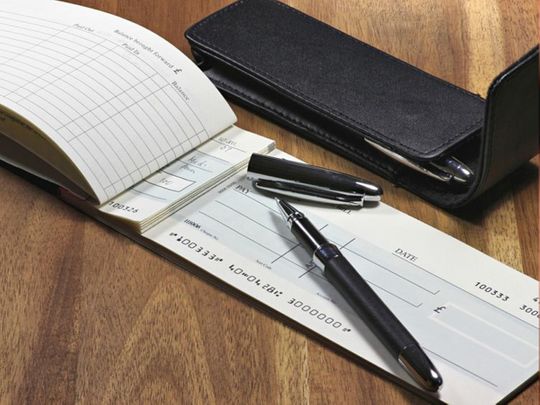
Dubai: More tenants in Dubai are requesting their landlords to allow for monthly direct debits of their rents as they face further increases in what they have to pay on the annual leases. These requests are mostly coming from tenants in mid-market residential areas, which will now see some of the sharpest rises in rents after the revisions to the RERA Rent Index.
Monthly deductions of the rent amount, sources say, could help tenants better manage their payment obligations, rather than having to make sure they have enough in their accounts when the cheques issued to landlords come up for submission. There have also been more instances of rental cheques bouncing, these sources add.
While that it impacts tenants’ relations with their landlords, it also affects them on their credit scores, and add to the misery. (Bounced cheques no longer warrants a criminal action in the UAE.)
Which is where the monthly direct from bank account debits can help. “96 per cent of UAE’s population is monthly salaried,” said Ummair Butt, CEO of Direct Debit System. “It is also evident from various studies that allowing monthly large expenses (to be deducted) reduces bounced payments by 41 per cent.
“The cost of living increases has hit everyone, including landlords.
“Tenants want monthly rent payments to get their household budgets aligned. Going with monthly rental debits is more sustainable - and devoid of the cyclical nature of real estate.”

We believe as users become more aware, scepticism about direct debits will fade and in the next three years, we will see an insignificant amount of cheques left in the economy.
Are landlords willing to consider option?
According to property market sources, there are landlords offer 12-cheque options or direct monthly debits. But their numbers are still very much on the lower side. The preference is to have the safety of the cheques issued to them by the tenants.
“The adoption of direct debits is mostly among a younger tenant base, who are comfortable with digital payments,” said Usman Jameel, sales Manager at the property firm Azco Group. “They make the payments through online platforms that have direct approvals from RERA. In time, we expect this to be a feature that becomes widely adopted.”
But it will take time, is what other industry sources say. Landlords want to be in possession of the cheques as the mode of payment. It’s a mindset that’s instilled deep into them.

The introduction of direct debit system for rents has seen some uptake, but the adoption is among the younger clientele.
There are other reasons why landlords are reluctant to choose monthly debits from tenant bank accounts.
“There are a few factors why cheques are still dominant in UAE,” said Butt.
“First, there is the ‘assignment of receivables’. Landlords may have multiple bank loans against multiple real estate assets. Assuming Bank A is the sponsoring bank for direct rental debits, then Bank B or Bank C will never allow landlords to route income from the assets they financed to go through Bank A.
“This forces the landlord’s hand to continue with cheques.
“Second, landlords need a viable ‘legal alternative’ to cheques. By that, I mean they need security of their payments. Direct Debit is the only digital legal alternative to cheques.”
On cheques: A typical cheque costs around Dh45 including on processing. Its usage is primarily more of a security instrument than payment.
- Ummair Butt, CEO of Direct Debit System











